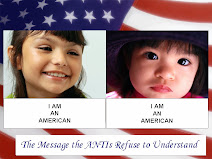 247wallst.com reports: 14 million people in the U.S. are jobless today. Yet, several states — even some that are experiencing economic recoveries — have begun to cut jobless benefits, according to recent data obtained by 24/7 Wall St. This is another example that the unemployment problem has become more insidious. Federal and state governments use two milestones — 26 weeks and 99 weeks — to determine unemployment insurance payments and when they are terminated. The number of people out of work for each of these time periods, or longer, grows.
247wallst.com reports: 14 million people in the U.S. are jobless today. Yet, several states — even some that are experiencing economic recoveries — have begun to cut jobless benefits, according to recent data obtained by 24/7 Wall St. This is another example that the unemployment problem has become more insidious. Federal and state governments use two milestones — 26 weeks and 99 weeks — to determine unemployment insurance payments and when they are terminated. The number of people out of work for each of these time periods, or longer, grows.States with the highest unemployment also tend to have the most financial trouble themselves. This is due to low tax receipts caused in large part by the high unemployment level. People out of work pay little or no taxes. But financial desperation is only one reason for states to decrease jobless benefits. A second group of states, some of which have begun strong recoveries, has also begun cutbacks. Governors and legislators of these states want to decrease budget deficits both by taking advantages of improved economic positions and through austerity programs for state costs.
24/7 Wall St. examined how the relationship between employment insurance and state finances has begun to change from the ways they operated in the early part of the recession until 2011. We reviewed the just released report on state unemployment law by the National Employment Law Project. The report identifies the states that are reducing their unemployment insurance coverage. The nine that are reducing benefits this year did so by either cutting the number of eligibility weeks or by reducing the payment amount.
Our analysis shows that local governments are choosing to make these reductions for a variety of reasons. Some, like Michigan and Arkansas, are seemingly forced to cut benefits because of ballooning unemployment rates along with struggling local economies. Others, like Illinois and Wisconsin, which are seeing their economies recover and the unemployment rates improve, are cutting also benefits.
All states that have altered their unemployment payment rules, either because of economic weakness or a desire to couple improved tax receipts with austerity, have one thing in common. They are part of a breakdown in a system to support a huge pool of Americans who have not found jobs for months, and may not find them at any time in the foreseeable future. This is especially true if there is another recession. The decisions by the states affect the extent to which the federal government has to bear the economic burden of the jobless. Recent battles in Washington make it less and less likely that there are nearly limitless funds to support the jobless once they have exhausted their state benefits. In addition to the other weight the jobless carry, they also may no longer be financially supported by governments in a similar manner to the recent past.








1 comment:
Unemployment ratio is rising day by day:(
Post a Comment